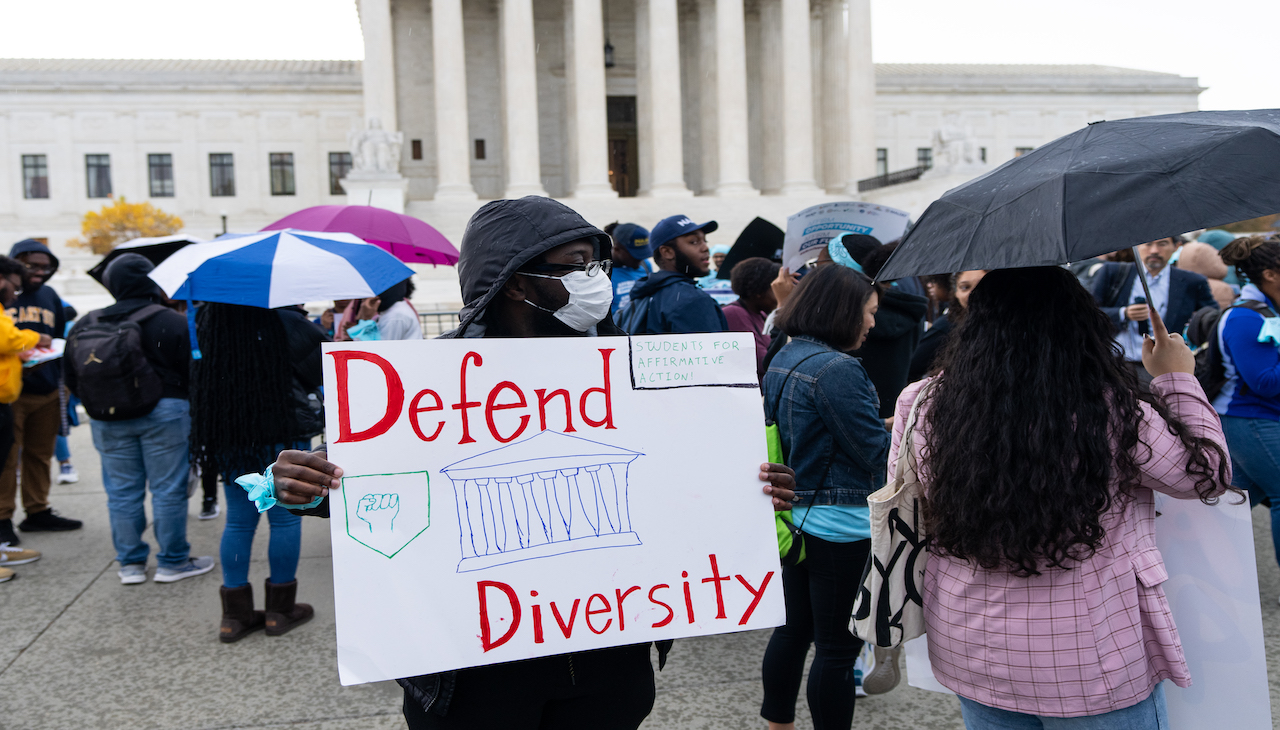
Supreme Court’s Affirmative Action ruling. How did Latino members of Congress react?
In a decision that could bring about huge implications, the U.S. Supreme Court ruled that colleges and universities can no longer take race into account as a specific basis for allowing admission. The landmark and controversial decision ends a long-standing precedent that has helped Black and Latino students get access to higher education.
Having existed since the 1960s, it was a way of preventing discrimination at selective institutions that historically only admitted white students.
In the majority opinion written by Chief Justice John Roberts, the programs in place "lack sufficiently focused and measurable objectives warranting the use of race, unavoidably employ race in a negative manner, involve racial stereotyping, and lack meaningful end points, those admissions programs cannot be reconciled with the guarantees of the Equal Protection Clause."
SCTOUS did not rule out race altogether in admission programs, adding, "nothing prohibits universities from considering an applicant’s discussion of how race affected the applicant’s life, so long as that discussion is concretely tied to a quality of character or unique ability that the particular applicant can contribute to the university."
However, civil rights leaders and education advocates say the decision will make it harder for institutions to have a diverse student population. It leaves schools now having to find other ways to reach Black and Latino students, something researchers and education officials say, will be hard to achieve.
Wisdom Cole, national director of the NAACP Youth & College Division, called the rollback of affirmative action a “dark day in America.”
This is what several U.S. Congressmembers had to say about SCOTUS’ ruling.
Rep. Delia Ramirez —
“Affirmative Action = racial justice! Taking it away will only entrench the inequities already present in our edu system & society,” the Illinois Rep said. “Another devastating ruling from a corrupt SCOTUS, putting their wealthy donors, the luxury trips & the expensive gifts over our freedoms & justice.”
“This is another clear example of why we need ethical accountability and to finally #expandthecourt!” she added.
Rep. Chuy Garcia —
“Overturning affirmative action and returning to a mythical "colorblind" admissions policy means doubling down on a legacy of segregation and exclusion,” he said. “And to be clear, there is nothing "colorblind" about ending affirmative action while legacy admissions continue.”
“This decision rips away education access from communities already facing disinvestment and inequitable paths to opportunity,” he added. “It undermines a diverse workforce, our economy, and our future. This is a devastating ruling from a cruel Supreme Court.”
Rep. Maxwell Frost —
"After generations of slavery, oppression, and systematic inequality and injustice, affirmative action seeks equity in a country and in educational institutions that deeply need it,” he said. “If education is truly meant to be the equal opportunity provider of our nation, then access to education should in fact be granted through the lens of equity.
CONTENIDO RELACIONADO
“Affirmative action is not about stifling opportunity for any one person. It’s about evaluating admissions with the history of our nation in mind.”
Rep. Greg Casar —
“Affirmative action for the children of university mega donors is legal, but affirmative action to increase diversity is not? A SCOTUS that’s been bought by billionaires may be trying to divide us, but our commitment to racial fairness and equal opportunity is stronger than ever,” Casar said.
Rep. Alexandria Ocasio-Cortez —
“If SCOTUS was serious about their ludicrous “colorblindness” claims, they would have abolished legacy admissions, aka affirmative action for the privileged,” he said. “70% of Harvard’s legacy applicants are white. SCOTUS didn’t touch that - which would have impacted them and their patrons.”
Rep. Nanette Barragan —
"Today's ruling by the Supreme Court dismantles more than 40 years of precedent to increase representation for marginalized groups in university and college campuses, erasing decades of progress,” said the Chair of the Congressional Hispanic Caucus. “Race-conscious admission policies that allow universities to consider race as one of several factors in the admissions process are a critical and much-needed component to address systemic inequalities and foster diversity.”
“Today's decision will only benefit the wealthy and well-connected at the expense of marginalized communities and exacerbate barriers students of color face on their path to attaining an education.”
Rep. Joaquin Castro —
“It’s time to end legacy admissions. Each year thousands of students are admitted to colleges around the nation only because their parents went there,” Castro said. “Legacy admissions are back-door discriminatory policies that overwhelmingly advantage wealthy, white students over everyone else.”










DEJE UN COMENTARIO:
¡Únete a la discusión! Deja un comentario.